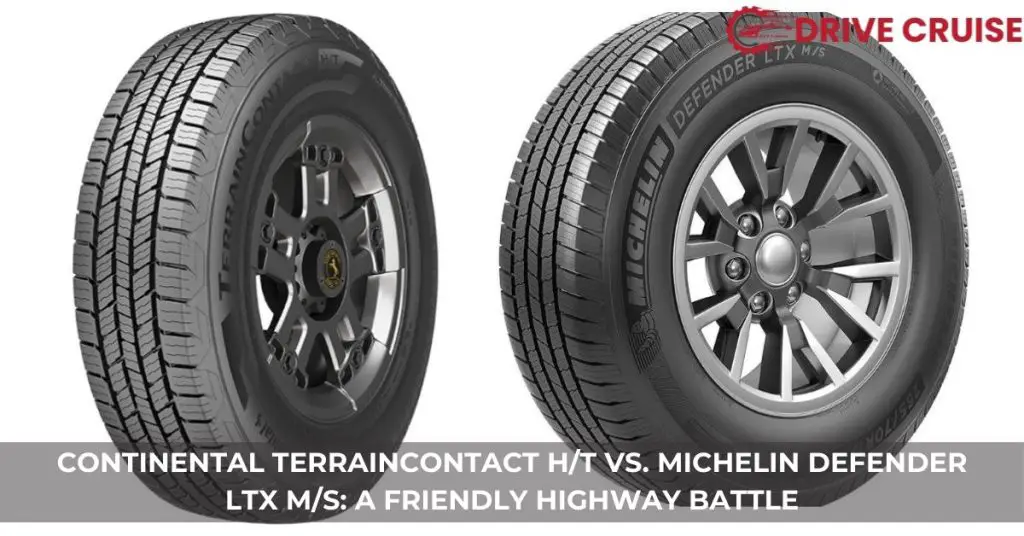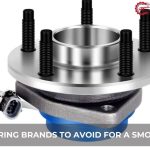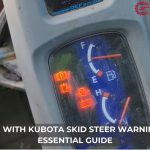When it comes to choosing the right tires for our vehicles, we’re often faced with a plethora of options. But when narrowing down the choices to the best all-season tires for light trucks and SUVs, two names frequently come up: Continental TerrainContact H/T and Michelin Defender LTX M/S. Both promise durability, comfort, and performance, but how do they really stack up against each other?
We’ve taken it upon ourselves to dive deep into the nitty-gritty of these two tire giants. We’ll explore what sets them apart and what might make one a better fit for your vehicle than the other. It’s not just about the tread pattern or the warranty—though those count too—it’s about how these tires can enhance your driving experience, no matter the weather or the road. So, let’s get rolling and find out which tire comes out on top.
Understanding the Basics
Moving on, let’s break down the core characteristics of both the Continental TerrainContact H/T and the Michelin Defender LTX M/S tires. These foundations help set the stage for a more detailed comparison.
First, looking at the Continental TerrainContact H/T, we find it’s engineered with light truck and SUV drivers in mind. It boasts features aimed at delivering a quieter ride, coupled with enhanced durability. Notably, its tread design allows for superior handling on both wet and dry roads, making it a versatile all-season choice.
In contrast, the Michelin Defender LTX M/S focuses on longevity and fuel efficiency, without sacrificing performance. Michelin’s use of their patented Evertread compound helps the tire last longer, even in tough driving conditions. This tire is also designed to deliver reliable traction in wet conditions and provides a comfortable, quiet driving experience.
Both tires offer unique advantages:
- Continental TerrainContact H/T:
- Targets comfort and durability.
- Offers balanced performance on wet and dry surfaces.
- Michelin Defender LTX M/S:
- Prioritizes longevity and fuel efficiency.
- Ensures reliable wet condition performance.
Understanding these basics allows us to appreciate how each tire brand aims to meet the needs of its intended audience. Whether you’re looking for a tire that emphasizes a smooth, comfortable ride or one that’s built to last longer while keeping you safe on the road, both these options present compelling features. As we proceed, keep in mind these foundational aspects to see how they play into the overall comparison between the Continental TerrainContact H/T and the Michelin Defender LTX M/S.
Key Features Compared
After examining the basic differences and advantages of the Continental TerrainContact H/T and Michelin Defender LTX M/S, let’s delve deeper into the key features. This comparison should help decide which tire best meets your driving needs.
Tread Design
- Continental TerrainContact H/T: Boasts a unique tread pattern designed for superior handling on wet and dry roads. This design minimizes road noise, providing a quieter ride, especially at highway speeds. The open tread pattern enhances grip and water evacuation.
- Michelin Defender LTX M/S: Features Michelin’s MaxTouch Construction, a design focused on longevity and fuel efficiency. The tread pattern, while also aiming for performance in wet conditions, prioritizes even wear, helping to extend the tire’s lifespan and maintain traction over time.
Durability and Wear
- Continental TerrainContact H/T: Engineered for durability, this tire incorporates a tough tread compound that stands up to rough road conditions, potentially extending the tire’s life. It’s an excellent choice for drivers who prioritize longevity alongside performance.
- Michelin Defender LTX M/S: With Michelin’s Evertread compound, this tire is built to last longer under severe conditions than conventional tires. This advanced compound increases the tire’s resistance to wear under heavy loads, making it ideal for light trucks and SUVs that regularly carry heavy cargo or tow.
Wet and Dry Performance
- Continental TerrainContact H/T: Delivers exceptional handling in both wet and dry conditions. The tread design and compound ensure reliable grip and braking power, even on wet roads.
- Michelin Defender LTX M/S: Also performs admirably on wet and dry surfaces, with the tread design offering solid traction and braking in wet conditions. The emphasis on energy efficiency also contributes to its performance, making it a tough competitor.
- Continental TerrainContact H/T: While focusing on performance and durability, also offers decent fuel efficiency for its category, making it a balanced choice in terms of economy.
- Michelin Defender LTX M/S: Stands out for its fuel efficiency, thanks to the MaxTouch Construction. This design maximizes contact with the road, distributing forces evenly and reducing rolling resistance, which, in turn, helps save on fuel.
Price Comparison
Diving into the price comparison between the Continental TerrainContact H/T and the Michelin Defender LTX M/S brings us to an essential aspect of our evaluation. Price, after all, plays a significant role in the decision-making process. When examining the cost of these tires, it’s crucial to note that prices can vary based on the size and specific model you’re considering. However, we can draw some general conclusions about the pricing trends for these two brands.
The Continental TerrainContact H/T tends to be priced slightly lower than its Michelin counterpart for most sizes. On average, consumers might find themselves paying about 10-15% less for a Continental tire compared to a Michelin Defender LTX M/S. For instance, if looking at a popular size such as 265/70R17, a Continental TerrainContact H/T might be available at a retail price of around $190 – $210, whereas a Michelin Defender LTX M/S could range from $220 – $240.
However, it’s also worth considering the value that comes with each tire. The Michelin Defender LTX M/S, while often more expensive upfront, claims a longer tread life. This increased longevity could offset the initial higher cost over time, making it a worthwhile investment for drivers who prioritize durability and fewer tire changes. Meanwhile, the Continental TerrainContact H/T offers competitive performance and comfort at a more attractive price point, possibly yielding better short-term value for those less concerned about long-term wear.
To further complicate the pricing landscape, both manufacturers frequently offer deals, rebates, and discounts that can significantly impact the final price paid by consumers. We always recommend checking for current promotions and comparing the total cost of ownership, including factors like durability and fuel efficiency, to get the best bang for your buck.
User Reviews and Ratings
After delving into the pricing dynamics of both the Continental TerrainContact H/T and Michelin Defender LTX M/S, it’s clear that understanding user experiences offers invaluable insights. We’ve scoured numerous platforms for real-world feedback to see how these tires stack up in the eyes of drivers.
Continental TerrainContact H/T
Owners commend the TerrainContact H/T for its exceptional comfort and quiet ride. Many note a significant improvement in driving experience, especially on highways. Durability is also a highlighted feature, with users reporting satisfactory tread life. However, a few mentions of performance under wet conditions suggest there is room for improvement, though these are not widespread concerns. Overall, the Continental TerrainContact H/T scores highly, boasting an average rating of 4.5 out of 5 stars on consumer review platforms.
Michelin Defender LTX M/S
Feedback for the Michelin Defender LTX M/S is similarly positive, with praise particularly directed at its all-weather capabilities. Drivers appreciate the tire’s performance on both dry and wet roads, and many underscore its winter weather traction. Durability, as predicted, is a strong suit – several users mention exceeding the expected tread life, reinforcing its value despite the higher price. Concerns are few, with occasional notes on price and the need for timely rotation. On average, the Michelin Defender LTX M/S garners a rating of 4.7 out of 5 stars across various review sites.
In essence, user reviews and ratings reflect the strong suits of each tire, reinforcing their value propositions. The Continental TerrainContact H/T shines for its comfort and pricing, making it a great choice for drivers focused on these aspects. In contrast, the Michelin Defender LTX M/S stands out for its durability and all-weather performance, appealing to those seeking reliability and versatility. By considering these experiences, drivers can better align their selection with their specific needs and preferences.
Pros and Cons
Transitioning from the previous discussion about price comparison and user reviews, we delve into the strengths and weaknesses of the Continental TerrainContact H/T and Michelin Defender LTX M/S tires. This comparison aims to consolidate crucial information, making your choice between these two top-tier tire options clearer.
Continental TerrainContact H/T
Pros
- Competitive Pricing: Compared to the Michelin Defender LTX M/S, the Continental TerrainContact H/T offers a more budget-friendly option, providing solid performance without breaking the bank.
- Comfort: Riders enjoy a significantly smoother and quieter ride, which is a direct result of the Continental’s focus on ride comfort in the TireContact H/T design.
- Fuel Efficiency: These tires are engineered to reduce rolling resistance, which can slightly improve fuel economy over some of their competitors, including the Defender LTX M/S.
Cons
- Durability: While not lacking in quality, the Continental TerrainContact H/T’s lifespan can fall short when directly compared to the Michelin Defender LTX M/S, especially under harsh driving conditions.
- Traction in Extreme Weather: Although performing well in most conditions, they might not offer the same level of grip as the Michelin Defender LTX M/S in severe snow or mud.
Michelin Defender LTX M/S
Pros
- Longevity: The Michelin Defender LTX M/S is celebrated for its exceptional tread life, outlasting many competitors, including the Continental TerrainContact H/T, especially in demanding environments.
- All-Weather Performance: With a focus on all-season reliability, this tire provides dependable traction across a broad range of driving conditions, from dry asphalt to snowy roads.
- Load Carrying Capacity: Ideal for light trucks and SUVs, these tires are designed to handle heavy loads without compromising performance or safety.
- Price: As highlighted earlier, the Michelin Defender LTX M/S comes at a higher price point, which might be a significant factor for budget-conscious buyers.
- Ride Comfort: Although it excels in durability and performance, some reviews suggest that ride comfort might not be as refined as with the Continental TerrainContact H/T.
Ideal Use Cases
Following our detailed comparison of the Continental TerrainContact H/T and Michelin Defender LTX M/S tires, it’s clear that each tire excels in different scenarios, suited to various driving needs and preferences. Let’s delve into the ideal use cases for each tire to help you decide which might be the best fit for your vehicle.
Continental TerrainContact H/T
- Urban and Highway Commuting: Given its competitive pricing, comfort, and fuel efficiency, the TerrainContact H/T shines for everyday urban and highway driving. If most of your driving involves dropping kids at school, running errands, or commuting to work on well-paved roads, this tire offers an excellent balance of performance and value.
- Light Off-Road Use: While not as rugged as some all-terrain options, the TerrainContact H/T can handle light off-road conditions like gravel or dirt roads, especially in dry weather. Its design provides a comfortable ride while ensuring durability for occasional off-the-beaten-path adventures.
- All-Weather Conditions: If you frequently encounter rain, snow, or a mix of weather conditions, the Defender LTX M/S’s superior all-weather performance makes it a standout choice. Its ability to maintain traction and stability in diverse conditions ensures safety and reliability, regardless of what Mother Nature throws your way.
- Heavy-Duty Use and Towing: For those who put their vehicles through rigorous work-related tasks, including towing or carrying heavy loads, the Michelin Defender LTX M/S’s exceptional load-carrying capacity and longevity are incomparable. Whether it’s for construction, landscaping, or towing a boat or trailer, this tire’s durability under stress makes it an ideal option.
Your specific driving conditions, vehicle use, and personal preferences play a crucial role in determining which tire suits your needs best. Whether it’s the daily comfort and efficiency of the Continental TerrainContact H/T or the robust, all-weather dependability of the Michelin Defender LTX M/S, both options offer distinct advantages for their ideal use cases.
Conclusion
We’ve explored the strengths and ideal scenarios for both the Continental TerrainContact H/T and Michelin Defender LTX M/S. It’s clear that choosing the right tire depends on your specific needs and driving conditions. If your days are mostly spent navigating city streets or hitting the highway with the occasional light off-road adventure the TerrainContact H/T is a solid pick. It offers a great blend of comfort fuel efficiency and value. But if you’re dealing with varied weather conditions require a tire that can handle heavy loads or find yourself frequently towing the Defender LTX M/S won’t steer you wrong. Its superior all-weather performance and durability make it a standout choice for the more demanding tasks. Ultimately we hope our insights help you make an informed decision that aligns with your driving habits and preferences. Safe travels!
Related Posts:
- Bridgestone Blizzak WS90 vs. Michelin X-Ice SNOW: Winter Warriors Face Off
- Continental TerrainContact H/T vs. Michelin Defender LTX M/S: A Friendly Highway Battle
- Goodyear Assurance WeatherReady vs. Assurance MaxLife: All-Season Showdown for Budget-Minded Drivers
- Michelin Defender T+H vs. Goodyear Assurance MaxLife: All-Season Champions Unveiled!




















